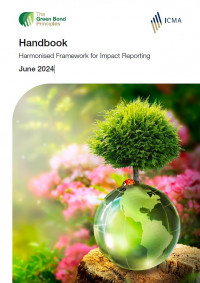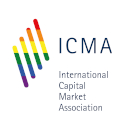 I. Handbook - Harmonised Framework
I. Handbook - Harmonised Framework
The Handbook – Harmonised Framework for Impact Reporting unites the Green Sector specific documents in one document preserving the content of the initial documents. The objective is to enhance the usability of the initial documents and to avoid repetitions. This 2023 Handbook updates the core principles and recommendations for reporting that provide issuers with a reference as they develop their own reporting. This Handbook also offers impact reporting metrics and sector specific guidance for the GBP project categories.
The indicators listed in this illustrative summary are not exhaustive. The users can find additional Core and Other Sustainability Indicators in the related Handbook. Depending on the projects specificities other indicators might be relevant as well.
In June 2023, the metrics related to Renewable energy (including production, transmission, distribution, appliances and products) and Energy efficiency (such as in new and refurbished buildings, energy storage, district heating, smart grids, appliances and products). While the Core quantitative indicators remain in substance unchanged, the two sections introduce a comprehensive list of “Other Sustainability Indicators”.
The June 2024 edition includes a new Annex on Potential Environmental and/or Social Risks Associated with Eligible Project Categories, that aims to highlight the processes for environmental and social risk identification, the potential green and social risks and metrics and the co-benefits.
Reporting templates are included in Chapter V of this Handbook, for issuers to use and adapt to their own circumstances. These templates make reference to the most commonly used indicators.
These templates are also available in Excel format. In June 2025, a second tab was added to include the indicative impact reporting indicators for nature-related projects, in accordance with the appendix of Sustainable Bonds for Nature: A practitioner's Guide.
II. Green Sector specific documents
- Renewable energy and energy efficiency - Suggested Impact Reporting Metrics for Renewable energy and Energy efficiency published in June 2023 by the Impact Reporting Working Group.
- Water and wastewater management - Suggested Impact Reporting Metrics for Sustainable Water and Wastewater Management Projects published in June 2017 by the GBP Impact Reporting Working Group.
- Waste management and Resource-Efficiency projects - Suggested Impact Reporting Metrics for Waste Management and Resource-Efficiency Projects published in February 2018 by the GBP Impact Reporting Working Group.
- Clean Transportation - Suggested Impact Reporting Metrics for Clean Transportation Projects published in June 2018 by the Impact Reporting Working Group.
- Green buildings - Suggested Impact Reporting Metrics for Green Building Projects published in March 2019 by the Impact Reporting Working Group.
- Biodiversity - Suggested Impact Reporting Metrics for Biodiversity Projects published in April 2020 by the Impact Reporting Working Group.
- Climate change adaptation - Suggested Impact Reporting Metrics for Climate Change Adaptation Projects published in December 2020 by the Impact Reporting Working Group.
- Circular Economy - Suggested Impact Reporting Metrics for Circular Economy and/or Eco-Efficient Projects published in June 2021 by the Impact Reporting Working Group.
- Living Natural Resources and Land - Suggested Impact Reporting Metrics for Living Natural Resources and Land Use Projects published in June 2022 by the Impact Reporting Working Group.
III. Translations of the Handbook - Harmonised Framework for Impact Reporting
For the avoidance of doubt, the English language version of the Handbook – Harmonised Framework for Impact Reporting is the official version of the document. The below translation is provided for general reference only.
The information on this Web page has been provided by third-party sources and is intended for general information only (the “Information”), and is not intended to be and should not be relied upon as being legal, financial, investment, tax, regulatory, business or other professional advice. ICMA is not responsible for the accuracy, reliability, currency or completeness of the Information. ICMA does not represent or warrant that the Information is accurate, suitable or complete and neither ICMA nor its employees or representatives shall have any liability arising from, or relating to its use.









